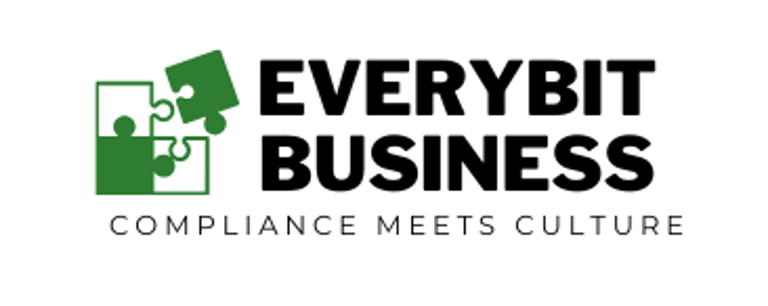The Myth of the "Perfect Employee"
When Commitment Crosses the Line
HR FOR START-UPS


Meet Maryanne. She's the employee every Kenyan SME owner dreams of: punctual, dependable, endlessly available. She works late, checks emails during Sunday mass, and says "I'll handle it" to every request.
For months, it works beautifully. Maryanne is productive, praised, indispensable. But lately, her once-flawless reports have errors. She's quieter in meetings, visibly exhausted and has frequent outbursts. That creative spark? Dimming fast. 🔅
Here's the uncomfortable truth: Maryanne hasn't failed. The system has.
The Real Cost of Employee Burnout in Kenyan SMEs
We've built a workplace culture in Kenya where being "busy" means being valuable. Exhaustion is worn like a badge of honor. Rest is something we'll get to "when things calm down."
The data tells a different story. According to Gallup, 76% of employees experience burnout at least sometimes. The World Health Organization classified burnout as an occupational phenomenon—not personal weakness, but a workplace issue that organizations create and can prevent.
For Kenyan SMEs, the impact is brutal. When one person does the work of three (because "you're showing commitment to the business" sounds better than "we're understaffed"), everyone pays—in morale, performance, and costly staff turnover.
The irony? We lose our best people not despite their commitment, but because of it.
🎯 Why Work-Life Balance Drives SME Productivity
For Employees: When you push too hard for too long, brain fog replaces brilliance. Irritability spikes—minor setbacks feel catastrophic. Your body keeps sending signals, but you've become expert at ignoring them. Until you can't anymore.
For Employers: High employee turnover costs Kenyan SMEs up to 200% of annual salary per replacement (SHRM data). Exhausted teams deliver slower results and make more mistakes. Burned-out employees share their experiences with friends and on platforms where your next job candidate is reading. Your employer brand takes a hit you can't easily repair.
The real challenge? Most business owners in Kenya already know this. But knowing and acting are frustratingly different things.
💡 What Works: A Nairobi Success Story
A rapidly growing Nairobi consulting startup noticed team members responding to client emails past midnight—some even during their commute. Management initially saw this as dedication. (We have a remarkable talent for reframing unsustainable behavior as virtue.)
Sound familiar? This pattern plays out in Kenya SMEs daily—across different industries.
After implementing structured rest days and genuine "no weekend emails" boundaries, something shifted:
Employee engagement rose by 41%
Staff retention improved significantly
Client satisfaction actually improved (well-rested teams deliver better service)
Rest isn't laziness. It's strategy. And it's replicable across Kenyan SMEs regardless of sector.
⭐ Building Sustainable Workplace Culture in Your SME
For Kenyan Business Owners:
Redefine productivity metrics. Measure problems solved, not hours logged. Smart work beats long work every time—but this requires trusting your team's judgment.
Model healthy boundaries. If you're sending emails at 11 PM, you're not demonstrating commitment—you're teaching everyone that boundaries don't exist. Urgency is a tool, not a default setting.
Invest in employee wellbeing. Regular check-ins, flexible schedules where possible, and mental health support aren't nice-to-haves. They're retention strategies that pay for themselves. The question isn't whether you can afford it—it's whether you can afford not to.
🚨 "But We Can't Afford This" — Actually, You Can't Afford Not To
Let's address the elephant in every Kenyan SME boardroom: "This sounds lovely, but we're barely breaking even. We can't hire more people or reduce hours."
Fair concern. Wrong conclusion.
Here's what actually works without breaking the bank:
✅ The Zero-Cost Boundary Reset (Start Tomorrow)
Stop expecting responses to emails sent after 6 PM or on weekends. You know that email you're drafting at 10 p.m.? Schedule it to send at 8 a.m. instead. Costs you nothing. Changes everything.
Institute "focus time" blocks where meetings are banned—let your team actually work instead of talking about working.
Model leaving on time yourself. Remember: your team is watching... On their way out the door at 4:59.
✅ The Minimal-Investment Wins (Under KES 60,000/month)
Rotate responsibility for weekend/evening emergencies instead of burning out your most reliable person. Even superheroes need days off.
Hire a part-time consultant or freelancer to handle the administrative overflow—often KES 35,000-55,000 monthly can take significant pressure off your full-time team.
Implement mandatory lunch breaks. Sounds basic? A Kenyan finance firm found that enforcing 45-minute lunch breaks reduced afternoon invoicing errors by 34%. Mistakes cost more than lunch breaks.
✅ The Smart Restructure (Actual Investment)
Before hiring, audit what work actually drives revenue versus what's just "how we've always done it." One Nairobi retail business eliminated three recurring reports nobody read—freed up 8 hours weekly.
Cross-train team members so work doesn't collapse when one person is out. This isn't duplication; it's risk management.
Sometimes you genuinely need another person. But here's the math: replacing a burnt-out employee costs up to 200% of their salary. Hiring proactively costs 100%. Which is the better investment?
The uncomfortable truth? Most SMEs can't afford not to address burnout. That "expensive" hire is cheaper than the revolving door. Those boundaries you think will slow you down actually speed you up by preventing catastrophic mistakes and mass exodus.
You're not choosing between profit and people. You're choosing between short-term thinking and sustainable growth.
For Employees:
Set professional boundaries. Saying "I can do this by Friday instead of Wednesday" isn't being difficult. It's managing expectations, which is literally part of being professional.
Protect your rest. Downtime fuels the focus and innovation you're hired to provide. There's a peculiar human tendency to assume admitting limits makes us look weak, when actually, consistently overcommitting and underdelivering makes us look unreliable.
Communicate capacity honestly. Pushing through in silence until you break helps no one, least of all you.
Maryanne's Resolution
Remember Maryanne? Her company finally noticed the pattern. They didn't replace her—they restructured. They hired support, redistributed workload, and established actual boundaries.
Three months later, Maryanne is back. The sharp insights have returned. She's engaged in meetings again. The errors have stopped. Not because she was broken, but because the system was fixed.
Her company also noticed something else: when Maryanne thrived, so did everyone around her.
One person's burnout recovery became everyone's success story.
🧠 Resources That Actually Help
Because knowing the problem exists is only half the battle. Here's what I have read, watched and implemented that has helped me in my leadership journey:
For Kenyan Business Owners & HR Leaders:
"Dying for a Paycheck" by Jeffrey Pfeffer – A Stanford professor's research on how workplace stress literally shortens lives.
TED Talk: "How to Succeed? Get More Sleep" by Arianna Huffington – Watch it during your lunch break. (You do take lunch breaks, right?)
"The ROI of Employee Wellbeing" – Deloitte Report – For the spreadsheet lovers who need the business case in numbers.
For Employees (And Managers Who Want to Support Their Teams):
"Burnout: The Secret to Unlocking the Stress Cycle" by Emily & Amelia Nagoski – Explains why rest is biological necessity, not moral weakness. Particularly good for the "I'll rest when I'm dead" crowd.
Burnout Test – Free self-assessment tool to measure where you actually are on the burnout spectrum.
Oasis Africa – Kenyan mental health organization providing workplace wellness programs and employee assistance. Because sometimes you need professional support, not just a blog post.
The best resource is the one you actually use. Pick one. Start today. Not Monday. Today.
📣 The Bottom Line for Kenyan SMEs
Maybe the smartest KPI for Kenyan SMEs isn't hours worked—it's humans recharged. And maybe your most competitive advantage isn't who can push their team hardest, but who can build a workplace where talented people actually want to stay.
When small businesses design work around human energy rather than endless effort, everyone wins: higher retention, sharper performance, stronger teams. This isn't soft management—it's strategic leadership that shows up in your bottom line.
👉 Ready to build a high-performing workplace without the burnout? At Everybit Business, we help Kenyan SMEs create HR systems that balance productivity with employee wellbeing—sustainably, strategically, and with proven results. Book your HR consultation today.
About the Author
This article was written by a HR professional with over 13 years of combined experience working with small and medium-sized enterprises across Kenya. We've seen the Maryanne story play out in every industry. We've helped over 50 Kenyan SMEs redesign their HR systems to prevent burnout while improving productivity. Not through expensive overhauls or importing Western corporate solutions that don't fit our context, but through practical, culturally-relevant strategies that work in the Kenyan business environment.
Because we believe the best employees shouldn't have to choose between doing excellent work and having a life. And the best employers shouldn't have to sacrifice their team's wellbeing to build successful businesses.
We're here to prove both are possible—simultaneously.

